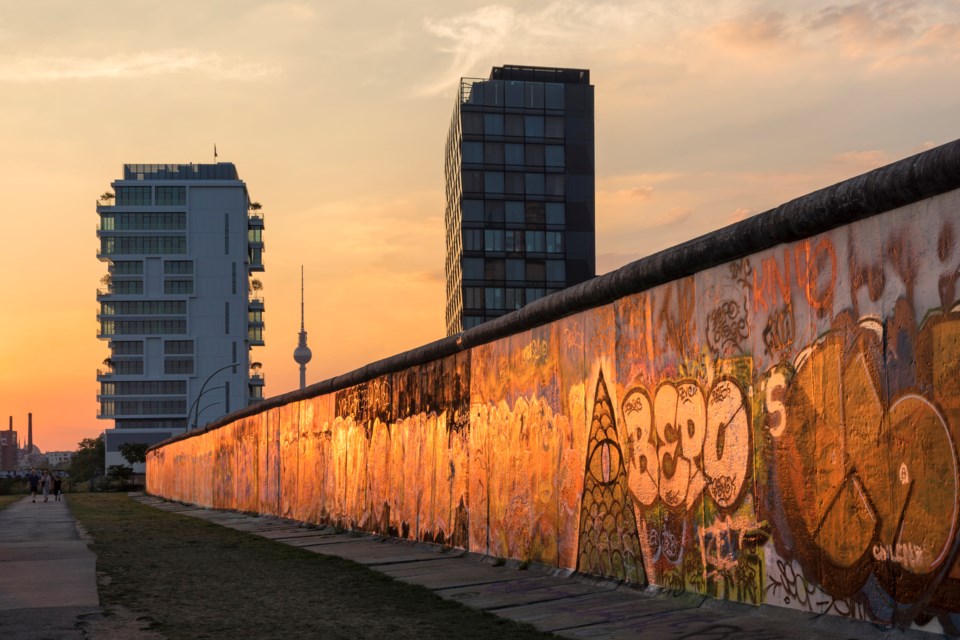I was born in the U.S.S.R. when Mikhail Gorbachev was still the general secretary of the Communist Party of the Soviet Union, and the leader of the country perceived as an "Evil Empire" as Ronald Raegan put it.
Gorbachev then became the first and soon to be the last president of the Soviet Union. He became the man that forever remained the symbol of freedom for me and for many others.
Gorbachev died last week at the age of 91. Thousands of people came to say goodbye, and condolences were coming from all across the world from anyone, from regular people to leaders of states to celebrities. The Russian president didn't make a public appearance at the lying-in-state due to a "busy schedule".
While Gorbachev was off the main political stage for over three decades, the value of his times is difficult to overestimate.
Gorbachev was the man whose reign is described through a number of terms and symbols that remained in global history. Perestroika (the movement for reform within the communist party in the U.S.S.R.), glasnost (literally publicity, openness; a government drive towards an open discussion of political and social issues, beginning of freedom of information), the end of the Cold War and the dissolution of the Soviets.
Gorbachev supported the fall of the Berlin Wall, became that wind of change and was awarded the Nobel Peace Prize for what he's done to change the world for the better.
On the other hand, the Chornobyl nuclear disaster, which the government was trying to hide, and the violent suppression of resistance and rebellions in Soviet Republics such as the Baltic countries, Azerbaijan, Georgia and others, were also a part of Gorbachev's reign.
Sometimes, he is judged through an either-or lens. He became the symbol of freedom for many people in what used to be the biggest empire; he was favoured in the west, where he was like a rock star with people admiring and art celebrating Gorbi; and he is viewed as a culprit by those, who were affected by his other decisions.
Historians and journalists say that for Gorbachev, the main value was peaceful resolution. By all measures, he was trying to prevent the bloodshed, and thus he would choose what he thought was the least bloody path. He said in the interviews he didn't want to dissolve the Union, but he didn't want the bloodshed, so he didn't hinder the Belovezh Accords – the document that formed the agreement declaring that the U.S.S.R. had effectively ceased to exist, and legally established the independence of all former U.S.S.R. republics (except Baltics) from Russia.
Gorbachev was one of the most noticeable politicians in Soviet history. He became the man who brought the 70 years of the Soviet era to a close. If not for his decisions, I could have been raised as another Soviet person – a category of humans Soviets were trying to create – those people were supposed to be selfless, learned, healthy, muscular and eager to spread the communist revolution.
But mainly, as my grandpa used to say, the common Soviet man's key to survival was the ability not to think, not to think about what exactly is going on and being done around, and keep quiet about any doubts.
Instead, early in life, I was given the freedom to choose – choose interests and education, choose a career and learn what was of value to me, choose what I want to believe in, choose what to read and what to watch, and choose who'd represent me the best. I was given the freedom to think and express any of my visions and thoughts. Like other Soviet people, I was given the right of vote and rights in general.
Even though Gorbachev was biting a hand that could have been feeding him for life if his main interest would have been to remain in power, he did allow for the deconstruction of the oppressive and corrupt system and gave freedom to people and countries.
On the international stage, Gorbachev proved that socialism can have a human face and that the Soviets could become a partner worth working with.
Gorbachev transformed the map of Europe, ended years of the Cold War and started the changes that had an economic, political and social impact on the rest of the world.
Yet, as Russian journalist Ilya Zhegulev put it, Gorbachev put the last hand on the U.S.S.R., but he fell short in his effort to change the world permanently.
He left the world at a sad time when peace and democracy – what he believed in and what he sacrificed for – is coming to an end.





